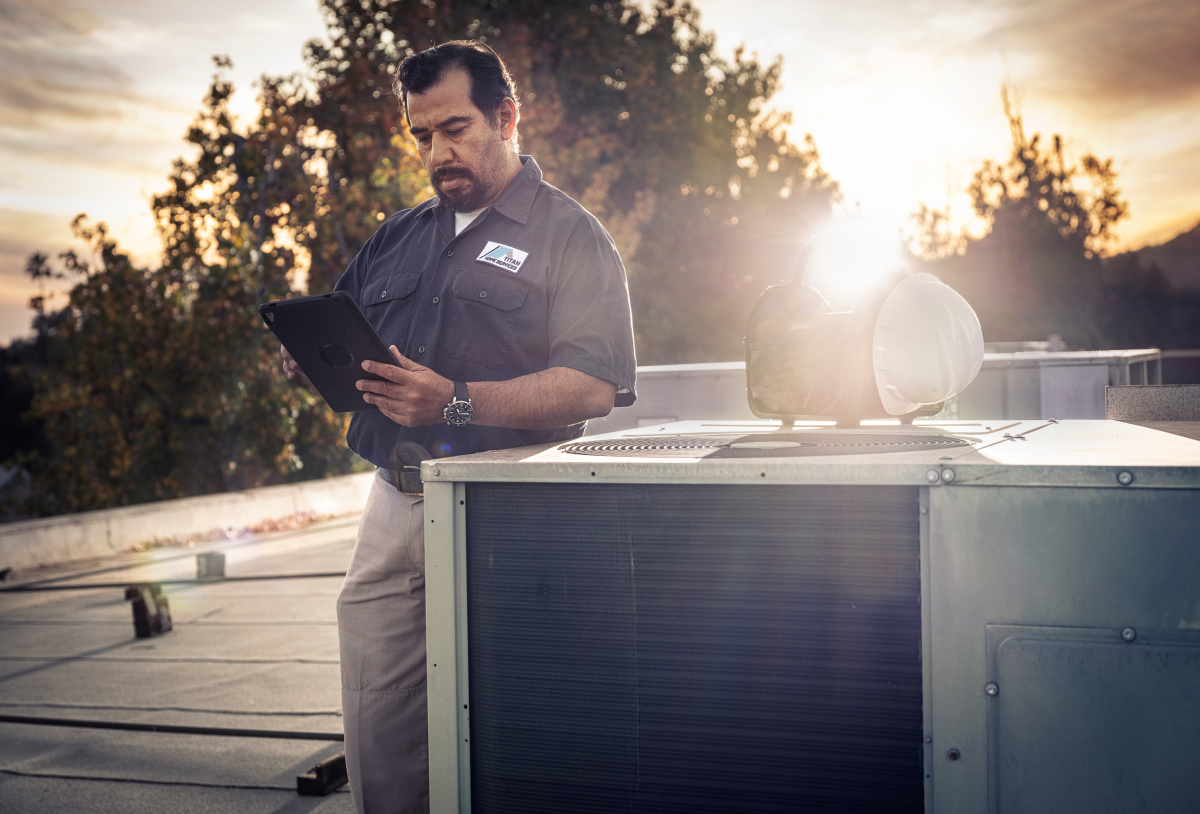Introduction: Why Traditional HVAC Prospecting Falls Short
Prospecting for commercial HVAC sales and services often feels like digging for a needle-in-a-haystack.
The traditional methods - cold calling, door-to-door canvassing, and searching LinkedIn profiles - often result in wasted hours with little in the way of fresh leads or a return on that time. Sales teams can find themselves chasing leads who aren’t interested, ready to buy, or aren’t even in the market for services like HVAC maintenance, repair, or installation.
What if there were a better way to target the right prospects at the right time? What if you could access detailed property data to help pinpoint HVAC installation and service needs without all the guesswork?
This is where the right Property intelligence tools can shift your prospecting from an exhaustive multi-channel investigation into a 3-5 minute point and click solution.
Commercial HVAC companies using intelligence tools that offer precise, actionable data to streamline prospecting process, optimize outreach, and improve conversion rates often see a 9X ROI on tools like Convex, which is why we’re going to showcase the best ways to utilize them today.
In this post, we’ll explore how property intelligence transforms HVAC sales teams, helping them target high-potential leads more efficiently and close deals faster.
What is Property Intelligence Software?
At its core, property intelligence software provides detailed insights about commercial and residential properties. For commercial HVAC companies, this means access to a wealth of data - everything from ownership and manager data to building size, square footage, permit history and even (in some cases) on-site equipment information.
With tools like Convex, HVAC sales teams can access property data through an intuitive map interface, pinpointing the buildings in their region, and right prospects to contact (some tools even use Generative AI to draft outreach messaging, and create phone scripts - but we’ll get to that later).
Unlike traditional lead-generation methods, which often rely on guesswork, time-consuming research or inaccurate data, property intelligence delivers precise, near real-time insights. It allows HVAC sales teams to focus on the right properties - those with a high likelihood of needing HVAC services - whether that’s for maintenance, installations, or upgrades.
Now that you know what property intelligence is, let’s talk about how it drives sales effectiveness through targeted lead generation.
How Property Intelligence Software Improves HVAC Lead Generation
You may feel that we’re over-emphasizing this point (as it’s come up several times), but Sales and Business Development Leaders tell us constantly that traditional methods of finding leads for HVAC services aren’t working anymore - especially when competitors are teeing up advanced sales and marketing tools and even artificial intelligence.
Often involving a ton of grunt work, driving, multiple permit databases (municipal, county, or city) only accessible through library portals, waiting for a referral or sifting through unqualified prospects - the traditional prospecting process is slow, inefficient, and rarely aligns with when the property actually needs HVAC services.
Property intelligence software flips this dynamic on its head. It provides commercial HVAC companies with immediate access to the data needed to generate better leads:
Permit History: Know which buildings recently had HVAC permits filed - and which ones haven’t in years.
Property Attributes: Filter buildings by size, age, use case, or vertical (e.g., healthcare, manufacturing, education).
Ownership & Contact Info: Go straight to decision-makers without digging through org charts or email verifiers.
Signals (Intent Data): See who’s in-market and prioritize outreach with predictive lead scoring.
Instead of guessing who might need HVAC services, your team knows who definitely does and can see who is researching and may need them soon.
By combining property data with buyer intent signals, HVAC companies can identify prospects who are actively seeking services or nearing a need for HVAC upgrades, such as systems approaching their service lifespan.
The Hidden Cost of Inefficient Prospecting

What does this look like in “real numbers?” According to Salesforce, the average rep spends over 21% of their time on prospecting and lead research. That’s more than a full workday every week spent Googling buildings, looking at databases, hunting down contacts, and chasing unqualified leads.
Here’s what that really costs:
Missed quotas due to low-quality leads
High sales turnover and knowledge loss
Burned-out reps from rejection fatigue
Weeks or months lost chasing dead-end accounts
Onboarding lag for new reps who need months to learn the territory
Inaccurate pipeline projections and quota coverage ratios
Multiply that across a 5-10 person team, and you’re potentially missing out on the best deals and losing hundreds of hours per quarter - hours that could be spent on building relationships and closing deals.
A Day in the Life: Traditional Prospecting vs. Modern Sales Intelligence
Let's walk through a direct comparison - two different commercial HVAC sales reps attempting to find a new customer.
Without high-quality sales and property intelligence tools: You start your morning with a full tank of gas, a notebook (or tablet) on the passenger seat, and a rough idea of which zip codes to hit.
You drive through commercial areas looking for promising buildings - big warehouses, aging office parks, and maybe a data center or two. You jot down addresses, snap a few photos, and make mental notes of who might need HVAC work - but at this point it’s just a guess.
Back at your desk, the detective work begins. You fire up Google, maybe hop over to LinkedIn. You’re trying to figure out who owns that warehouse you saw on 5th and Park but the property management company doesn’t have a LinkedIn company page.
You hop over to their website which is so outdated Hunter.io won’t populate the email addresses. You find your local library’s permit portals and after looking at municipal databases, you've found who filed the permits and an email address you think is correct.
You finally send a cold email - something like, “Hi, are you the right person to talk to about your HVAC system?” And then… silence. Or worse, you get a gatekeeper who’s been trained to shut salespeople down faster than a broken thermostat.
3 hours of driving, 90 minutes of "Googling" and 3- 4 emails sent that may (or more likely may not) get replied to. And that was for the possibility of getting one lead.
Now, imagine instead: you log into Convex. You pull up the software and within seconds, you’re filtering buildings by size, property type, and ownership status. You spot a 60,000-square-foot warehouse built in 2005 that hasn’t had any HVAC permit activity in 7 years. Looks promising.
Then you check Signals - Convex’s buyer intent data - and see that the facilities manager has been actively looking at HVAC upgrade resources.
From there, it’s two clicks: you generate a custom outreach email using Generative AI, tailored to the exact building type, permit history, and job title of the decision-maker. You get a verified phone number. You pick up the phone and actually talk to someone who can say yes.
You drop the lead into your CRM, set a follow-up reminder, and move on to the next. Five minutes. That’s it.
To put it another way, manual prospecting is like randomly flipping over rocks, hoping to find gold. Intelligence software enables you to start with a map where the gold is already marked.
Key Benefits of Property Intelligence for HVAC Companies

Here are the primary ways property intelligence software helps HVAC companies streamline their sales process:
Improved Lead Quality: Property intelligence tools like Convex offer buying signals and lead scoring, which allows HVAC sales reps to prioritize prospects who are more likely to convert. For example, a property with an old HVAC system may indicate an urgent need for replacement or maintenance, making that prospect a high-priority lead.
Reduced Prospecting Time: The days of “driving for dollars” or manually hunting down leads are over. With property intelligence, HVAC companies can quickly access valuable data on properties in their service area, narrowing down their focus to the highest-potential leads. This reduction in research time means sales reps can focus on selling rather than searching.
Personalized Outreach: With access to detailed property information, HVAC sales reps can tailor their outreach messages based on specific property needs. Whether it’s offering maintenance services for an aging HVAC system or proposing energy-efficient upgrades for a large commercial property, personalized outreach increases engagement and conversion rates.
Increased Close Rates: By targeting the right properties at the right time, HVAC companies can shorten sales cycles and increase the likelihood of closing deals. Property intelligence makes it easy to prioritize high-value prospects, ensuring that reps spend their time on leads that are most likely to convert.
Real-World Case Study: HVAC Success with Property Intelligence
One example of how property intelligence has benefited HVAC companies comes from Comfort Systems USA Southwest, which adopted Convex to improve their lead generation. The company had long struggled with traditional prospecting methods, spending hours on the road without a clear sense of which leads were worth pursuing.
With Convex, Comfort Systems was able to pinpoint properties in their service area based on factors like building size and ownership status. This targeted approach saved sales reps time and led to more meaningful conversations with property decision-makers.
As Joel Martos, a Sales Consultant at Comfort Systems, shared:
“Now, I know exactly who to go after. It’s been a game-changer for us, helping us double our sales and significantly increase efficiency.”
The software’s map-based property intelligence and Signals (intent data) allowed the company to prioritize high-value leads and reach out with personalized messages. As a result, they cut down on the time spent prospecting and saw a 9x return on investment within 12 months.
Conclusion: Accelerating Sales with Property Intelligence
If your HVAC team is still prospecting the old way, you’re probably working too hard for too little return - which could be leading to high employee turnover, missed sales quotas, and cash flow issues in your business.
The ability to leverage property intelligence software represents a powerful shift for improving sales efficiency, targeting the right prospects, and ultimately boosting conversion rates. Whether you’re tracking buying signals, accessing decision-maker contact data, or tailoring your outreach based on building characteristics, property intelligence ensures that your team is always working smarter, not harder.
By integrating property data with AI-driven outreach tools like Generative AI from Convex, HVAC companies can streamline their lead generation efforts, reduce wasted time, and increase their chances of closing more deals faster.
If you’re ready to see how property intelligence can transform your HVAC prospecting and close rates, Schedule a Demo to see Convex in Action.
Share





